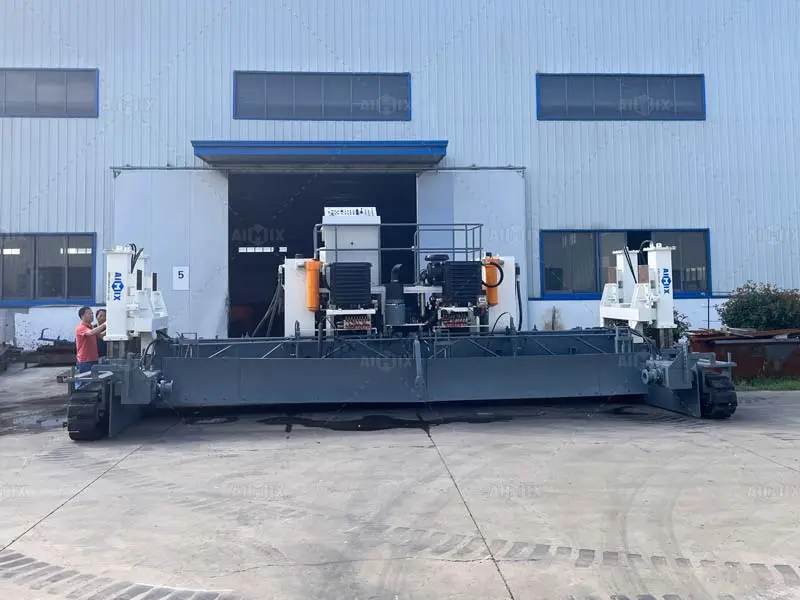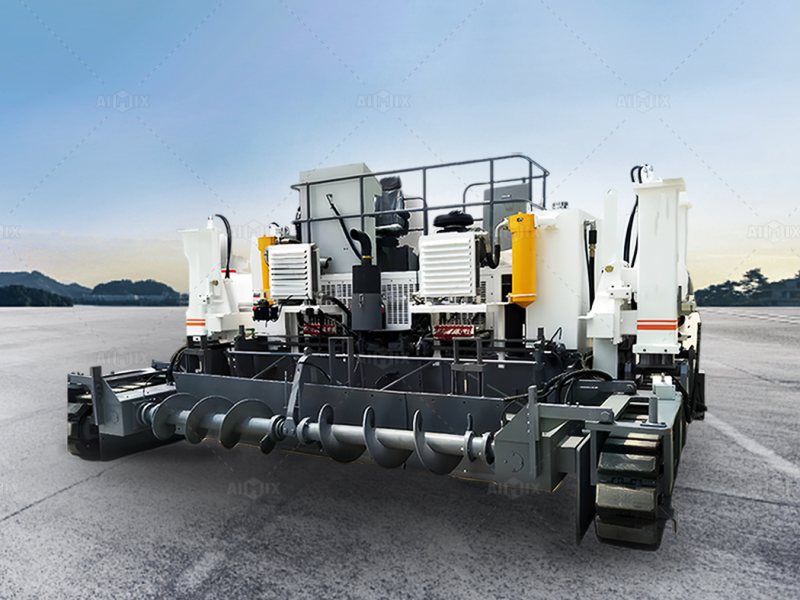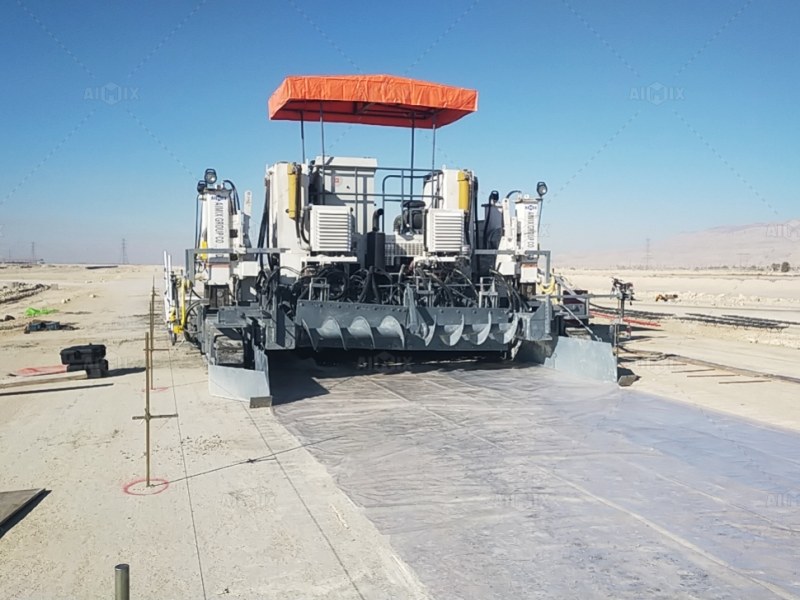The durability and quality of road infrastructure are critical in modern construction projects. Uneven surfaces, premature cracks, and potholes not only compromise safety but also increase maintenance costs. To address these challenges, the concrete paver machine has become an indispensable tool in road construction. By automating and streamlining the paving process, this equipment ensures smooth, long-lasting pavements while improving operational efficiency.

Understanding Concrete Paver Machines
A concrete paver machine is specialized equipment designed to lay concrete uniformly across a pavement area. These machines combine multiple functions—concrete distribution, compaction, leveling, and finishing—into a single system. The most common types include slipform pavers, which continuously extrude concrete to form a road, and fixed-form pavers, which are often used for smaller or specialized projects.
The main advantage of using a concrete paver machine is the ability to produce consistent, high-quality pavements that meet precise engineering specifications. By eliminating inconsistencies caused by manual labor, these machines enhance pavement strength and durability.
How Concrete Paver Machines Enhance Pavement Quality
1. Uniform Concrete Placement
A concrete paver machine ensures that fresh concrete is evenly distributed across the pavement area. The controlled flow reduces gaps, air pockets, and weak spots, forming a solid base that can withstand heavy traffic loads. Uniform placement is essential for structural integrity and longevity, especially in highways, airport runways, and industrial zones.
2. Precise Screeding and Leveling
Equipped with screeds and automatic leveling systems, concrete paver machines spread the concrete to the required thickness while maintaining a consistent slope and alignment. Precise leveling minimizes surface irregularities, reduces water accumulation, and improves ride quality. Properly leveled pavements also prevent uneven stress distribution, reducing the risk of cracking and deformation over time.
3. Effective Compaction and Vibration
Built-in vibrators and tampers compact the concrete during paving, eliminating trapped air and increasing density. Proper compaction enhances compressive strength and durability, ensuring that pavements can resist heavy vehicle loads and environmental stresses. Compacted concrete also reduces permeability, preventing water infiltration and extending pavement lifespan.
4. Reinforcement Integration
Many modern concrete paver machines allow the integration of steel reinforcement bars or fiber additives during the paving process. Side tie bars, dowel bars, and fiber reinforcements improve structural integrity, load distribution, and resistance to cracking. Reinforced concrete pavements are ideal for highways, container yards, and industrial sites where durability is crucial.
5. Smooth Surface Finishing
After compaction, trowels, brushes, or other finishing tools create a smooth and uniform surface texture. A well-finished pavement not only enhances aesthetics but also improves skid resistance, drainage, and long-term wear resistance. Smooth surfaces reduce vehicle wear and tear, contributing to safer and more efficient road networks.

Economic Benefits of Using a Concrete Paver Machine
Investing in a concrete paver machine provides significant long-term economic benefits. Roads constructed with machine-laid concrete typically last 20–40 years with minimal maintenance, compared to asphalt roads that require frequent resurfacing. The machine’s high productivity also reduces labor costs and project timelines, making it a cost-effective choice for contractors and governments alike.
Moreover, efficient paving reduces material waste and optimizes concrete usage, further lowering overall project costs. For large-scale infrastructure projects, these savings can be substantial, making the adoption of concrete paver machines a practical strategy for both private and public sectors.
Environmental Advantages
Concrete paver machines contribute to environmentally sustainable construction practices. Their precise concrete placement minimizes material waste, while modern models are designed with fuel-efficient engines to reduce energy consumption. Additionally, concrete is highly recyclable—old pavements can be crushed and reused in new projects, promoting a circular economy.
Machine-laid concrete surfaces also reflect more sunlight compared to asphalt, helping reduce the urban heat island effect. Lower surface temperatures reduce thermal stresses on pavements, further enhancing their lifespan and durability.
Applications Beyond Roads
The use of concrete paver machines extends beyond highways and streets. They are widely employed in airport runways, taxiways, aprons, industrial zones, container yards, and parking areas. In these applications, the ability to produce thick, reinforced, and high-quality surfaces ensures that pavements withstand heavy loads, continuous use, and environmental stresses without premature deterioration.
Technological Innovations Driving Performance
The latest concrete paver machines incorporate advanced technology such as GPS guidance, laser-controlled screeds, and real-time monitoring systems. These features allow for precise grading, alignment, and thickness control, reducing the risk of uneven surfaces and weak spots.
Predictive maintenance and automation further enhance efficiency, allowing operators to plan maintenance schedules, reduce downtime, and extend machine life. Integration with Building Information Modeling (BIM) also improves project coordination, planning, and execution, leading to more reliable infrastructure outcomes.

Conclusion
A concrete paver machine is a vital investment for modern road construction, offering unmatched benefits in pavement quality, durability, and operational efficiency. By ensuring uniform concrete placement, precise leveling, effective compaction, and smooth finishing, these machines produce long-lasting pavements that require minimal maintenance. For a reliable concrete paving machine, you can just check and contact Aimix to get equipment details and price as you need, just take action now.
For contractors, governments, and urban planners, adopting concrete paver machines not only reduces lifecycle costs but also supports sustainable, high-quality infrastructure development. Investing in this technology ensures safer roads, longer-lasting pavements, and a future-ready approach to construction that balances efficiency, quality, and environmental responsibility.
Leave a Reply